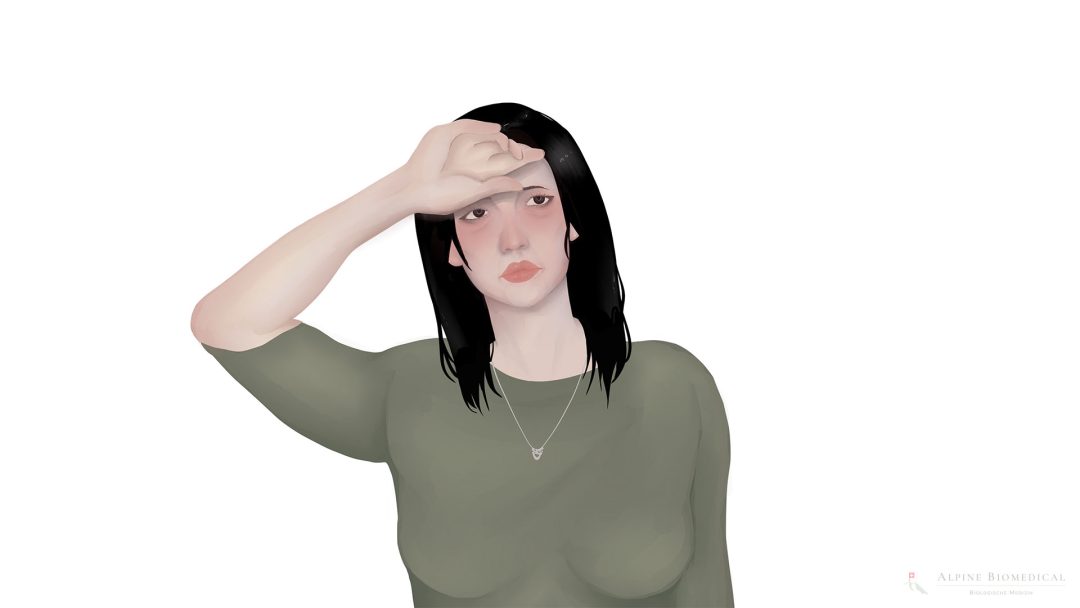Hot Flashes

Hot flashes, also known as hot flushes are one of the most common symptoms during the menopause (climacteric). They are triggered by hormonal changes in the body, mainly due to the drop in estrogen and progesterone levels. The typical vasomotor symptoms manifest themselves in sudden hot flashes, accompanied by sweating, heart palpitations and chills with shivering. These can occur both during the day and at night and can lead to sleep disorders or depressive moods.
Causes of hot flashes
Hot flashes during menopause are caused by hormonal changes in women. Hormones are signaling molecules that have a certain effect on the various organ systems. However, the effects are not limited to the organs themselves, but can directly or indirectly influence blood vessels and sweat glands. For example, the drop in estrogen and progesterone during the menopause leads to sudden reactions in the blood vessels and sweat glands.
During menopause, the influence of the parasympathetic nervous system on the heart decreases and the influence of the sympathetic nervous system increases. This further intensifies the physical reactions and leads to symptoms of the heart. Hot flashes are therefore accompanied by sweating, chills and heart palpitations.
Dr. med. Karsten Ostermann M.A.
In most cases, hot flashes during menopause subside on their own and a balance occurs. If there is no improvement, the exact causes should be clarified and treated in a cause-oriented manner.

Further information
The information listed contains relevant topics and serves to improve understanding.